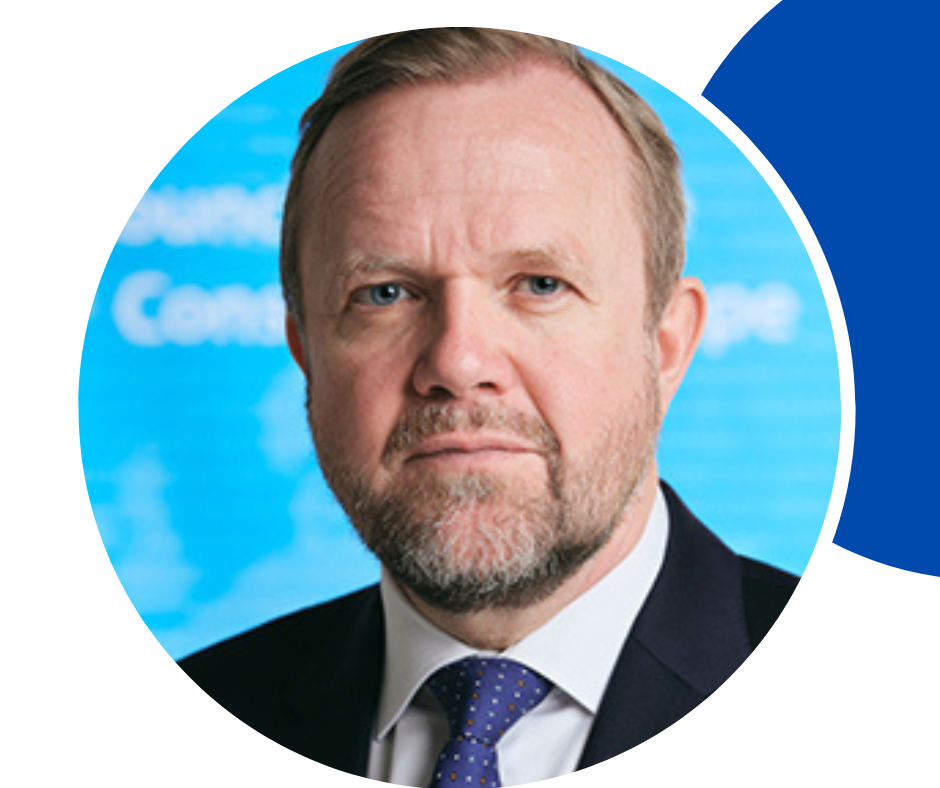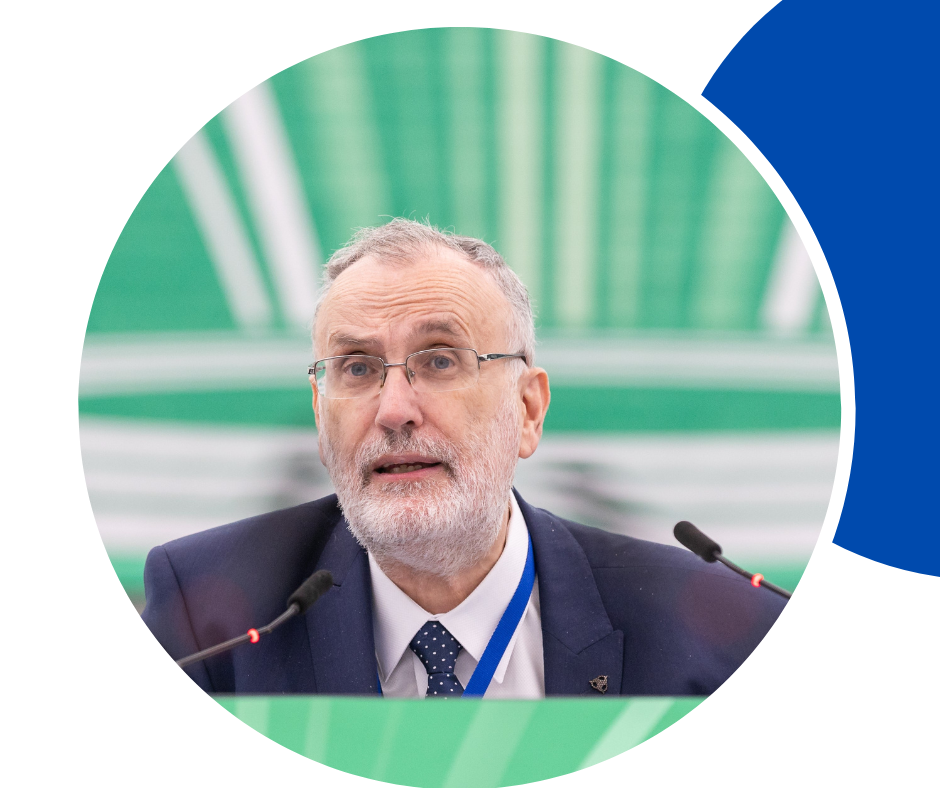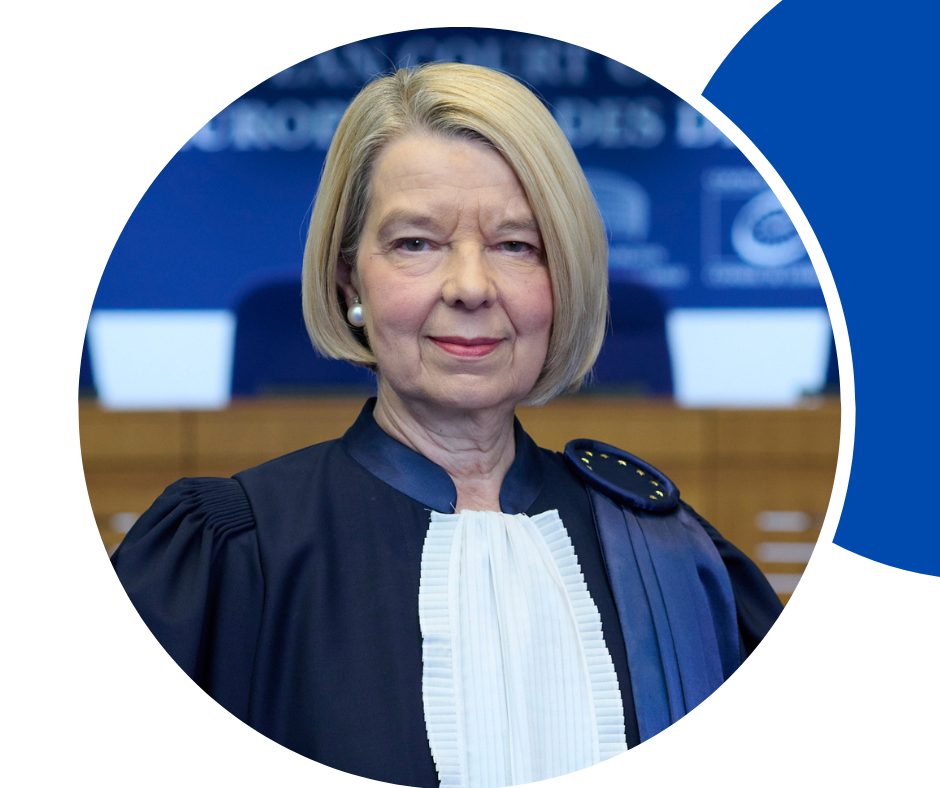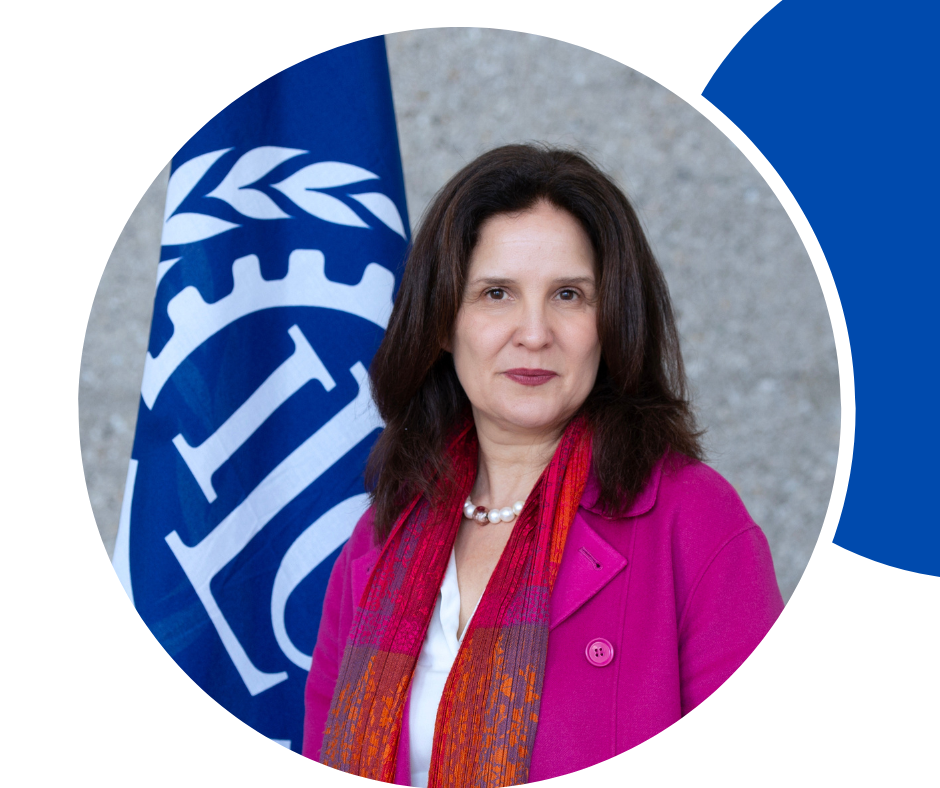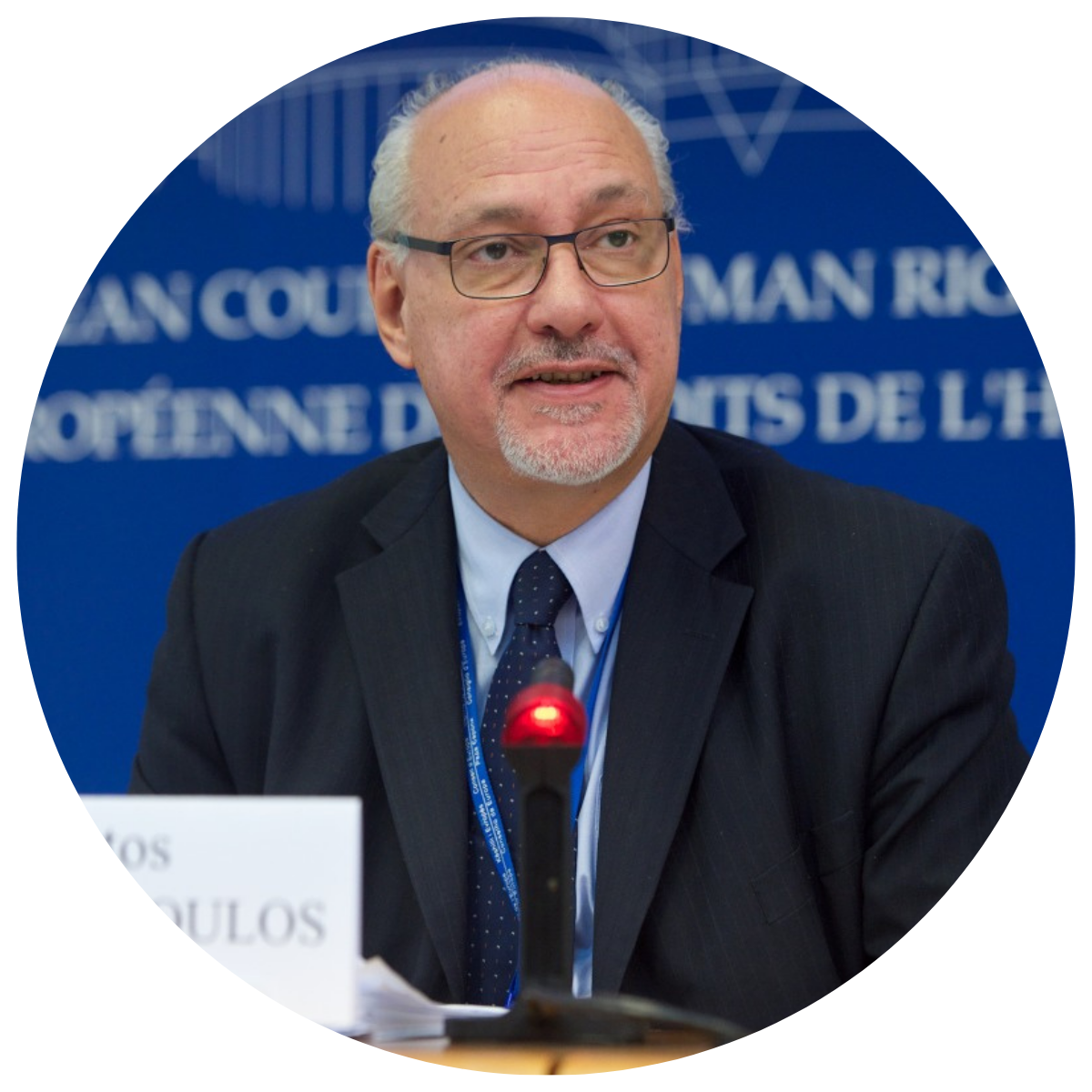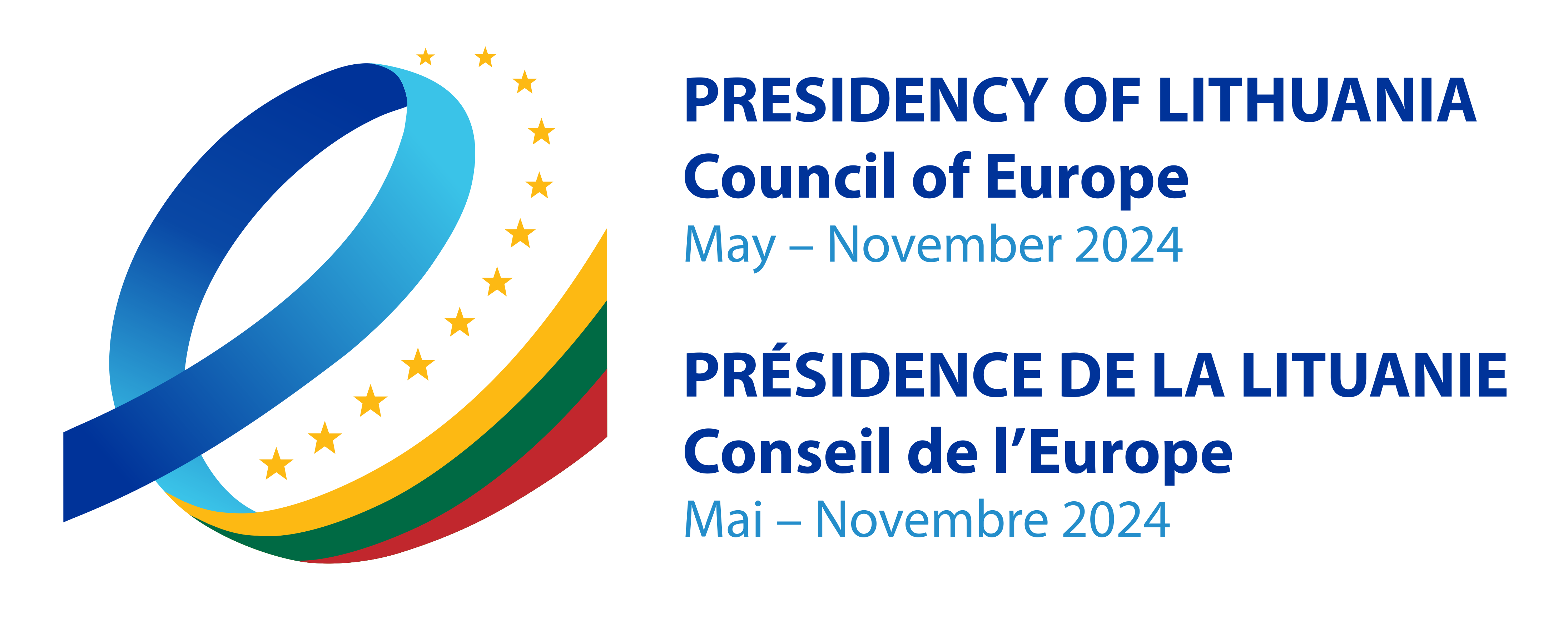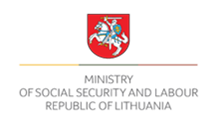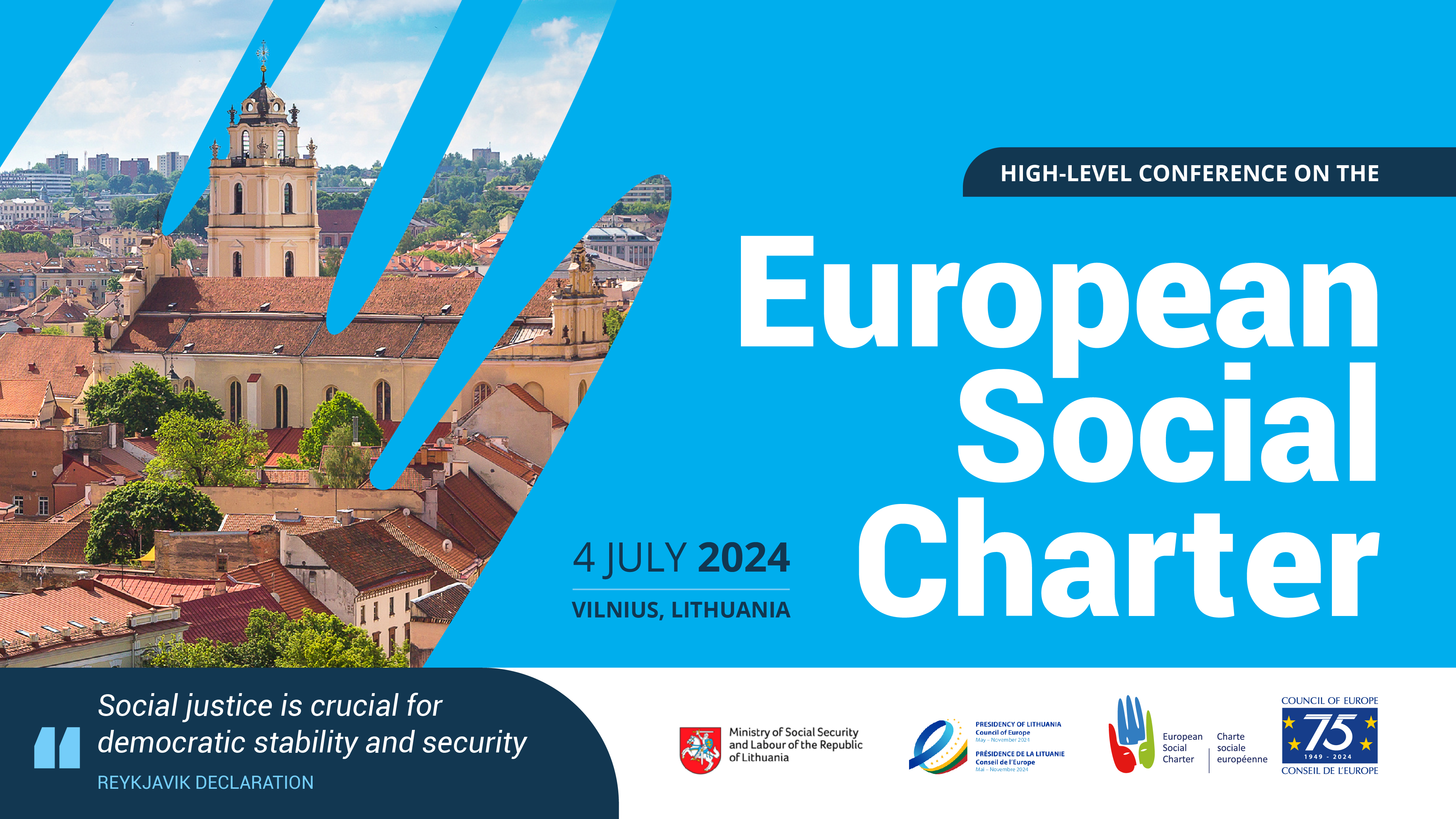Programme et orateurs - Conférence de haut-niveau sur la Charte sociale européenne
La Conférence de haut niveau sur la Charte sociale européenne est organisée dans le cadre du suivi du 4e Sommet du Conseil de l'Europe, afin de permettre aux États membres de prendre de nouveaux engagements dans le cadre de la Charte. La Conférence est organisée sous les auspices de la Présidence lituanienne du Comité des Ministres et sera accueillie à Vilnius par le Secrétaire Général Adjoint du Conseil de l'Europe et le Ministre de la Sécurité Sociale et du Travail de Lituanie.
La Conférence de haut niveau réunira des ministres et des hauts fonctionnaires compétents dans le domaine des droits sociaux et de la politique sociale, des représentants des entités du Conseil de l'Europe, y compris l'Assemblée parlementaire, le Congrès des pouvoirs locaux et régionaux, le Commissaire aux droits de l'homme et la Cour européenne des droits de l'homme. Parmi les autres participants attendus figurent des représentants de l'Union européenne, de l'Agence des droits fondamentaux de l'UE, de l'OIT, de l'ONU, etc., ainsi que de la société civile, des partenaires sociaux, du monde universitaire, des institutions nationales des droits de l'homme et des organismes de promotion de l'égalité ou de leurs réseaux paneuropéens. Les membres du Comité européen des droits sociaux et du Comité gouvernemental de la Charte sociale européenne et du Code européen de sécurité sociale participeront également à la conférence.
Discours d'ouverture
(en anglais uniquement)
Prime Minister Ingrida Šimonytė assumed office on 25 November 2020, becoming the second woman in the nation’s history to serve in the position. As a trained economist, Prime Minister Šimonytė served as the Director of the Tax Department from 2002 to 2004, the Undersecretary of the Ministry of Finance of the Republic of Lithuania from 2004 to 2009, and the Minister of Finance from 2009 to 2012. In 2016, Prime Minister Šimonytė served in Lithuania's parliament, Seimas, for the Antakalnis constituency. In this position, Šimonytė served on the European Affairs Committee and was the chairperson of the Audit Committee. She was reelected to Parliament in the 2020 parliamentary election, where the Homeland Union won a plurality of seats.
Šimonytė received her Masters degree in Economics from the Faculty of Economics at Vilnius University in 1998, and her Bachelor degree in Business Administration and Management from the Faculty of Economics at Vilnius University in 1996. Prime Minister Šimonytė later served as President of the Council at her alma mater, Vilnius University, from 2014 to 2016.
Prime Minister Šimonytė speaks Lithuanian, English, Russian, Polish, and basic Swedish. Prime Minister Šimonytė received the Cross of Officer of the Order of Vytautas the Great in 2015, and the Clear Wave award for transparent and responsible activities in 2012.
M. Bjørn Berge est depuis le 1er mars 2021 Secrétaire Général adjoint du Conseil de l’Europe.
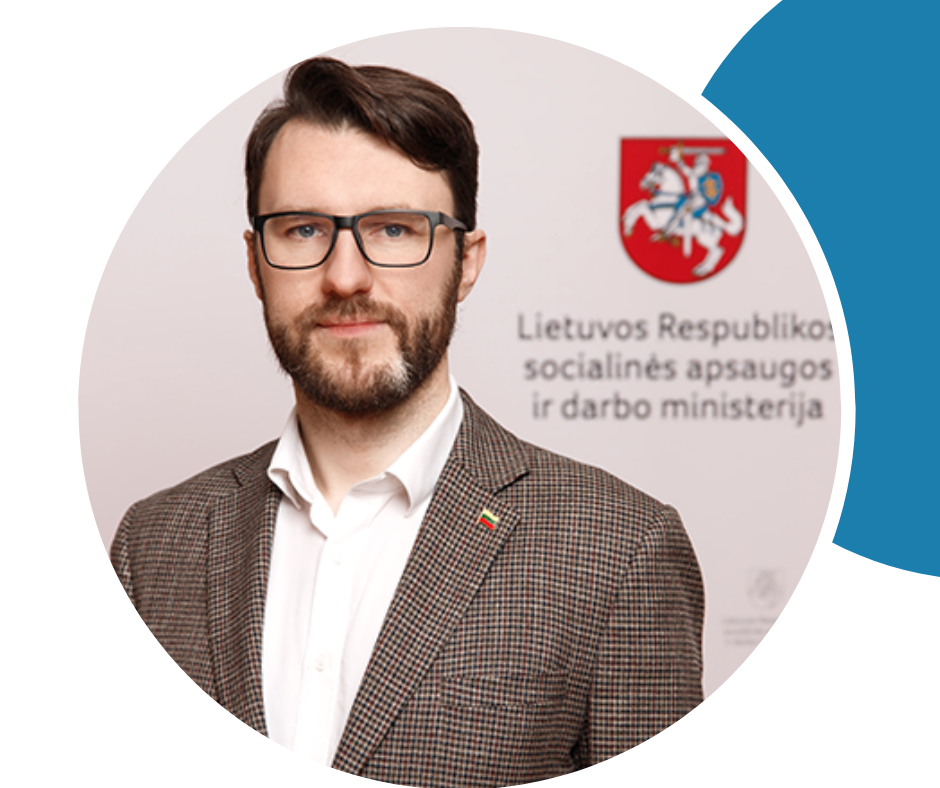
M. Vytautas Šilinskas, Ministre de la sécurité sociale et du travail de la Lituanie
( en anglais uniquement)
Vytautas Šilinskas has had a diverse career, starting as an Associate at TGS Baltic in 2008, progressing to Senior Associate in 2016, and then becoming an Associated Partner in 2020. He also worked as a Lawyer in 2020-2021. In 2021, he became the Vice Minister of Social Security and Labour. As of June 27, 2024, he assumed the role of Minister of Social Security and Labour.
Vytautas Šilinskas completed his Master’s degree in Law at Vilnius University.
- Achievements: He was nominated as one of the best Employment Law experts in Lithuania (Rising Star) by the Legal 500.
- Interests: He has a keen interest in geopolitics, economy, history, and philosophy.
His main goal as the Minister of Social Security and Labour is to ensure that the public sector works for the people and helps them. He believes that the quality of public services determines the trust in the public sector. He is committed to ensuring continuity of work and further developing an efficient public sector, backed by the motivation of institutional employees to work for the people of Lithuania
Ouverture de la Conférence

Moderé par M. Vytautas Šilinskas, Ministre de la securité sociale et du travail de la Lituanie
Theodoros Rousopoulos, Président de l'Assemblée parlementaire du Conseil de l'Europe
Marc Cools (Belgique, GILD) a été élu Président du Congrès des pouvoirs locaux et régionaux du Conseil de l'Europe le 24 octobre 2023 pour un mandat de deux ans et demi. Il est le Conseiller communal d’Uccle (Belgique) et vice-président honoraire du Parlement bruxellois, et était auparavant Président du groupe des indépendants et des libéraux-démocrates au Congrès.
Vice-Présidente de la Cour depuis le 2 mai 2024.
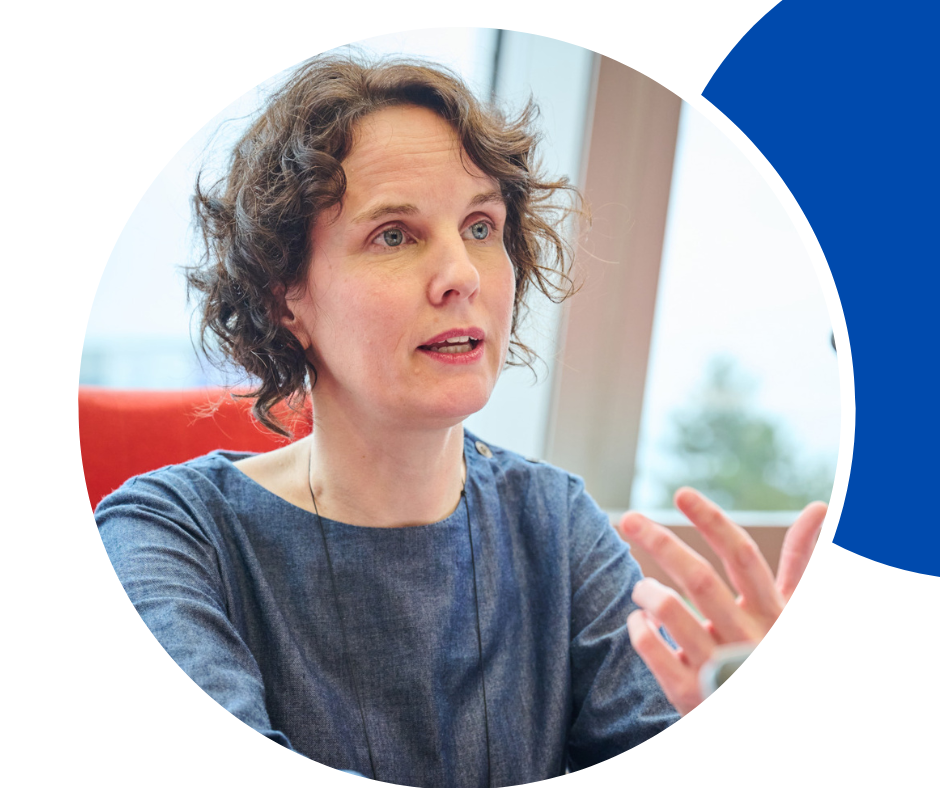
Aoife Nolan, Présidente du Comité européen des droits sociaux du Conseil de l'Europe
Aoife Nolan est la présidente du Comité européen des droits sociaux du Conseil de l'Europe, qu'elle a rejoint en 2017, après avoir été vice-présidente de 2021-22. Elle est également professeur de droit international des droits de l'homme et directrice du Centre de droit des droits de l'homme de l'Université de Nottingham. L'expérience professionnelle de la professeure Nolan en matière de droits de l'homme et de droit constitutionnel couvre les domaines juridique, politique, pratique et universitaire. Elle a publié de nombreux ouvrages dans les domaines des droits de l'homme et du droit constitutionnel, notamment en ce qui concerne les droits sociaux et les droits de l'enfant.
La professeure Nolan a été conseillère experte auprès de plusieurs gouvernements ainsi que d'un large éventail d'organisations et d'organismes internationaux et nationaux travaillant sur les questions de droits sociaux, notamment de nombreuses procédures spéciales des Nations unies, des organes de traités des Nations unies, le Conseil de l'Europe, la Banque mondiale, de nombreuses institutions nationales des droits de l'homme et des ONG. Elle a occupé des postes de visite dans des institutions universitaires en Europe, en Afrique, aux États-Unis et en Australie. Elle est membre experte académique à Doughty Street Chambers où elle co-dirige le Groupe des droits de l'enfant et est membre du groupe directeur de Doughty Street International.
Cette session affirmera l'importance des droits sociaux (et donc de la Charte) à travers le prisme des défis sociétaux contemporains. Les questions d'actualité pourraient inclure l'augmentation des inégalités, l'avenir du travail et des relations industrielles, la numérisation, l'intelligence artificielle, ainsi que la dignité humaine et l'écart de rémunération entre les hommes et les femmes, la pauvreté et la crise du coût de la vie, les droits des jeunes, le changement climatique, etc.
Déclarations des chefs de délégations nationales / Échange de vues ;
Réponses d'autres parties prenantes (gouverneur de la Banque de développement du Conseil de l'Europe, jeunes, universitaires, ...).

Modérée par M. Guðmundur Ingi Guðbrandsson, Ministre des Affaires sociales et du Marché du travail et Ministre de la Coopération nordique d'Islande
(en anglais uniquement)
Guðmundur Ingi Guðbrandsson took office as Minister of Social Affairs and the Labour Market on November 28th 2021 for the Left-Green Party.
He was Minister for the Environment and Natural Resources from November 30, 2017 to November 28, 2021.
Guðmundur Ingi was born on March 28 1977. He holds a BSc degree in Biology from the Universitry of Iceland and a masters degree in Environmental Management from Yale University. He was the CEO at Landvernd – Icelandic Environment Association from 2011 – 2017.
He also worked for the University of Iceland carrying out research in ecology and environmental sciences, and for the Soil Conservation Service of Iceland in the fields of global studies and research. Since 2006, Guðmundur Ingi has been a guest lecturer at the University of Iceland, the Agricultural University of Iceland and the University Centre of the Westfjords.
He has also worked as a park ranger almost every summer for the last few years. Guðmundur Ingi was one of the founders of the Icelandic Society for Environmental Scientists. He was the society´s first president, in 2007-2010. Guðmundur Ingi served as the Chair of the Fulbright Alumni Association in Iceland in 2017-2018.

Discours d’ouverture - Aoife Nolan, Présidente du Comité européen des droits sociaux
Aoife Nolan is President of the Council of Europe's European Committee of Social Rights, which she joined in 2017, having served as Vice-President from 2021-22. She is also Professor of International Human Rights Law and Director of the Human Rights Law Centre at the University of Nottingham. Professor Nolan’s professional experience in human rights and constitutional law straddles the legal, policy, practitioner and academic fields. She has published extensively in the areas of human rights and constitutional law, particularly in relation to social rights and children’s rights.
Professor Nolan has acted as an expert advisor to several governments as well as a wide range of international and national organisations and bodies working on social rights issues, including numerous UN Special Procedures, UN treaty bodies, the Council of Europe, the World Bank, multiple NHRIs and NGOs. She has held visiting positions at academic institutions in Europe, Africa, the US and Australia. She is an Academic Expert member at Doughty Street Chambers where she co-leads the Children’s Rights Group and is a member of the Doughty Street International steering group.
Cette session discutera de l'importance de la Charte, de sa mise en œuvre et de son efficacité. Elle permettra également de réaffirmer l’importance de la justice sociale et la valeur du système de la Charte comme moyen de répondre à l’érosion des droits sociaux et de prévenir le recul démocratique. Les participants pourront partager leur expérience et exprimer leur soutien aux mécanismes de suivi prévus par la Charte, en particulier la procédure de réclamations collectives, en tant qu'outils de bonne gouvernance démocratique aidant les autorités nationales à élaborer des politiques.
Discours d'ouverture
Mme Isabelle Schömann, Secrétaire générale adjointe de la Confédération européenne des syndicats (CES)
Déclarations des chefs de délégations nationales / Échange de vues
Réponses d'autres parties prenantes (Organisation internationale des employeurs, institutions nationales des droits humains et organismes de promotion de l'égalité, EIGE,...)
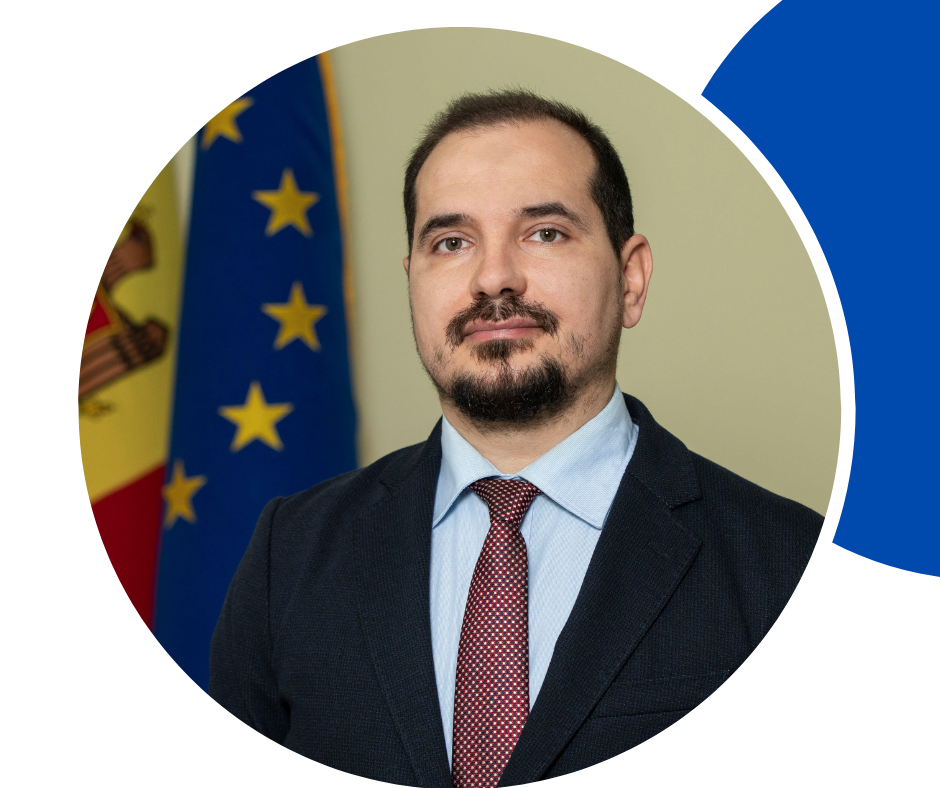
Modérée par M. Alexei Buzu, Ministre du Travail et de la Protection sociale de la République de Moldavie
(en anglais uniquement)
Alexei Buzu is the Minister of Labor and Social Protection of the Republic of Moldova. He was previously involved in institutional capacity development initiatives to strengthen results management processes, apply performance measurement systems, promote good governance and gender equality.
Alexei has been a consultant for several international development organizations in the impact assessment of their programs in areas such as: labor market, economic development, social assistance, demography, education, health, elections, migration, water and sanitation. Alexei provided support and consultancy for projects implemented in Armenia, North Macedonia, Liberia, Zambia, South Africa and Thailand.
Alexei is a promoter of gender equality and inclusion, he advocated for the adoption of several initiatives aimed at: equal participation of women in politics, expanding opportunities for parents to combine professional and family life, preventing and combating sexual harassment.
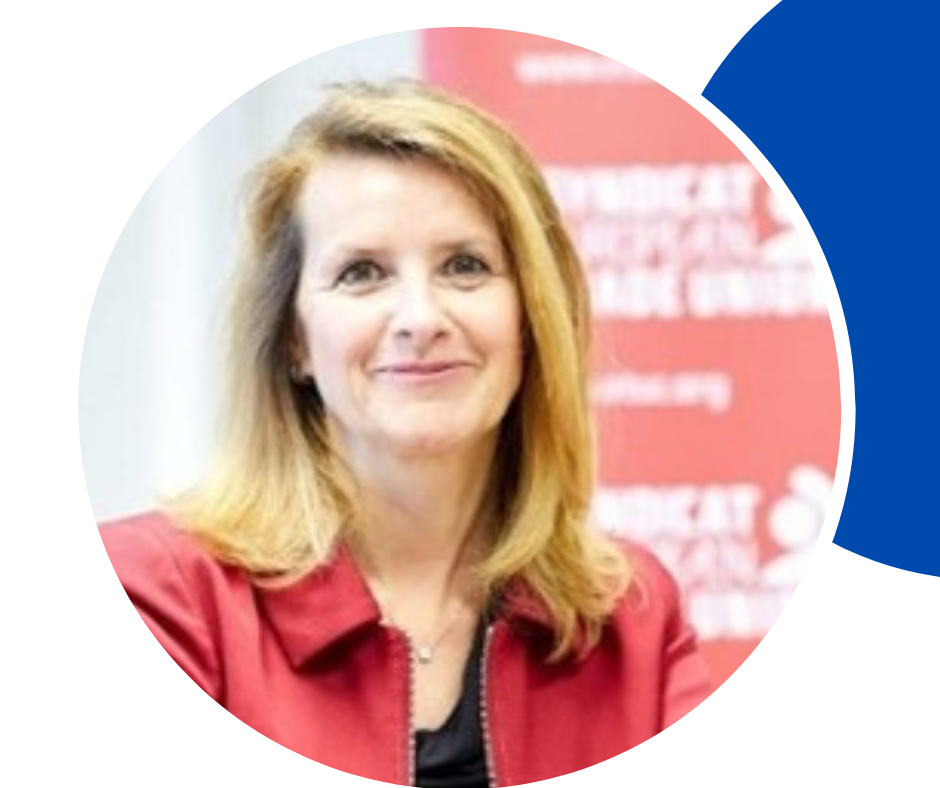
Discours : Mme Isabelle Schömann, Secrétaire générale adjointe de la Confédération européenne des syndicats (CES)
(en anglais uniquement)
Isabelle Schömann, has been elected Deputy General Secretary at the ETUC 15. Congress in Berlin, in May 2023.
Isabelle heads ETUC policies on Democracy at Work with a focus on Workers’ Information, Consultation and Participation, on Legal Affairs with a focus on Trade Unions, Workers’ and Human Rights, the ETUC legislative, legal and litigation strategy (the ETUCLEX), on Gender Equality, on Single Market, and on Human Centric Digitalisation with a focus on Artificial Intelligence in the world of work.
Isabelle served as ETUC Confederal Secretary between 2019 to 2023. Key achievements in setting and implementing ETUC agenda materialise in her leadership in Corporate Sustainability Due Diligence, European Works Councils, Artificial Intelligence, Right to Disconnect; in guaranteeing access for self-employed to collective bargaining, on fighting Gender-based violence, in equipping the ETUC with Human Rights Legal and Strategic Litigation, in positioning the ETUC on the Social Progress Protocol, on EU Open Strategic Autonomy, Industrial Strategy that deliver for workers, on sustainable and inclusive EU Competition Policy.
Isabelle, affiliated to the DGB, is member of IG Metall. As former ETUI researcher, she was ETUI staff representative and member of the ETUC works council, member of the FGTB.
Isabelle is a former Principal Adviser to the Regulatory Scrutiny Board of the European Commission, worked as ETUI senior researcher and as research fellow at the Berlin Social Science Center (WZB - Germany). Isabelle holds a postgraduate degree in Social and Labour Law from the Sorbonne University in Paris (France).
Cette session analysera les progrès de la mise en œuvre de la réforme du système de la Charte et réfléchira aux moyens d’accroître encore sa pertinence et son impact. Elle offrira aux participants l’occasion d’exprimer leurs points de vue sur les moyens de renforcer la réponse du Conseil de l’Europe, consacrée par la Charte sociale européenne, et sur la manière de préserver sa pertinence et son impact à l’avenir. Ils pourront discuter de la désirabilité ou de l’opportunité d’introduire de nouveaux droits et d’autres questions de fond ou de procédure à plus long terme que le processus de réforme n’a pas pleinement abordées.
Déclarations des chefs de délégations nationales / Échange de vues
Réponses des autres parties prenantes (organisations internationales - CDESC, CCJ, société civile,...)
(en anglais uniquement)
Dr Michael Falzon was born on November 16, 1961 to Moses Falzon and Carmela nee’ Said.
He received his Primary and Secondary education at St Albert the Great College. He joined the Bank of Valletta in 1979. Dr Falzon graduated as a Notary in 1989 and as a Lawyer in 1991. He also obtained the international qualification as an Associate of the Chartered Institute of Bankers, (ACIB).
He served as the Election Manager of the Malta Labour Party 1992 to 2003.
He served as the Labour Party’s International Secretary between 1998 and 2003. Dr Falzon’s international work culminated in meetings with world leaders such as the Tony Blair; Massimo D’Alema; Martin Schulz, Kevin Rudd, etc.
He first contested the general elections in March 2008 and was elected from the Second and Tenth District. He was also Deputy Leader for Party Affairs from March 2003 to June 2008. He also contested the 2013, 2017 and 2022 general elections in which last two elections he was elected on both the Ninth and Tenth Districts, and was appointed Minister for Social Policy and Children’s Rights.
Dr Michael Falzon also served as Parliamentary Secretary for Planning and Simplification, from April 2014 to January 2016.
Dr Michael Falzon is married to Anna Maria nee’ Lia and they have two children, Martina and Nathaniel.
Discours d'ouverture M. Aongus Horgan, Président du Comité gouvernemental de la Charte sociale européenne et du Code européen de sécurité sociale
(en anglais uniquement)
I have over 30 years experience in the Irish public sector and currently work in the International Division of the Social Protection Ministry. I have an accounting qualification which was useful when I previously worked in the Pensions Authority and policy areas of the Ministry. I also worked as private secretary to the then Minister for Social Protection which gave me an insight into the functioning of government and the interface between the political and the administrative systems. I am currently Ireland’s representative to the Employment, Labour and Social Affairs Committee of the OECD.
I originally was Ireland’s representative on the Governmental Committee (GC) of the Council of Europe and the then Social Cohesion Forum but was elected as Chair of the GC in 2022. In my role as Chair, I very much enjoy the contacts with people and organisations, while working for social rights by reinforcing the Social Charter and Code.
I have over 30 years experience in the Irish public sector and currently work in the International Division of the Social Protection Ministry. I have an accounting qualification which was useful when I previously worked in the Pensions Authority and policy areas of the Ministry. I also worked as private secretary to the then Minister for Social Protection which gave me an insight into the functioning of government and the interface between the political and the administrative systems. I am currently Ireland’s representative to the Employment, Labour and Social Affairs Committee of the OECD.
I originally was Ireland’s representative on the Governmental Committee (GC) of the Council of Europe and the then Social Cohesion Forum but was elected as Chair of the GC in 2022. In my role as Chair, I very much enjoy the contacts with people and organisations, while working for social rights by reinforcing the Social Charter and Code.
Cette session offrira l’occasion aux chefs de délégations nationales d'exprimer et d'expliquer leur soutien à la Déclaration politique de la Conférence et aux activités et développements futurs destinés à renforcer la réponse du Conseil de l'Europe dans le domaine des droits sociaux et de la Charte sociale européenne.
Introduction de la session par le modérateur : M. Vytautas Šilinskas, Ministre de la sécurité sociale et du travail de la Lituanie
Déclarations des chefs de délégations nationales / Echange de vues
Interventions d'autres acteurs (APCE, CE, ONU, ...)
Adoption par les Ministres et hauts fonctionnaires d'une Déclaration politique
Moderé par M.Vytautas Šilinskas, ministre de la sécurité sociale et du travail de la Lituanie
Christos Giakoumopoulos a été nommé Directeur général des Droits humains et de l’Etat de Droit du Conseil de l'Europe le 1er août 2017.

M. Vytautas Šilinskas, Ministre de la sécurité sociale et du travail de Lituanie




